Downtime, missed deadlines, and compliance risks. Without the right air compressor, construction sites face costly delays.
Compressed air is more than a utility. It’s a mission-critical power source that drives tools, equipment, and productivity on modern sites. This guide shows you how to select, size, and operate air compressors that protect your uptime, reduce costs, and keep you fully compliant.
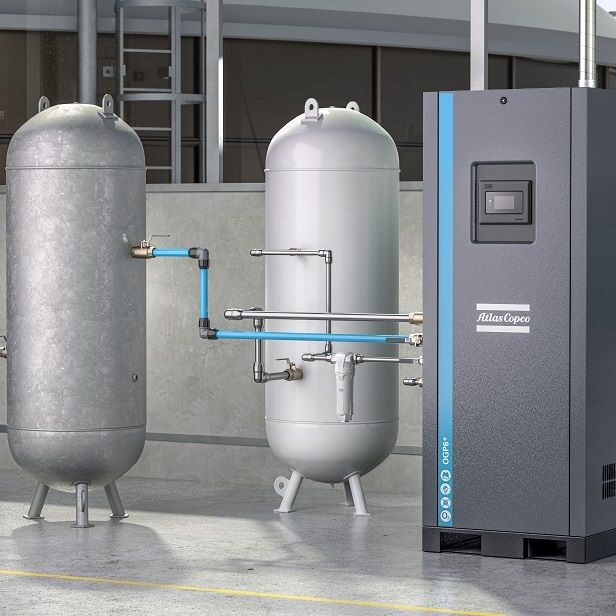
Applications: Matching the Compressor to the Mission
Compressed air is essential for all stages of a construction project. Oil-lubricated rotary screw compressors are often used on job sites to power air tools because they're tough enough to handle continuous, heavy-duty use. It's also helpful to know the different types of reciprocating and rotary compressors available to find the ideal unit for every job. Ensure your unit is sized correctly to prevent poor tool performance and costly downtime.
Groundwork, Demolition, and Drilling
These heavy-duty tasks demand a continuous, high-volume supply of air.
- Pavement Breakers: A standard 90 lb breaker requires 80-100 CFM at 90 PSI. An Atlas Copco XAS 185 portable compressor is engineered to comfortably power two such breakers simultaneously.
- Rock Drills: These tools are air-hungry, often needing 100+ CFM to operate effectively.
- Geotechnical & Foundation Drilling: Specialised applications require high-pressure units. The Atlas Copco DrillAir range, for example, delivers pressures from 21–35 bar to power down-the-hole hammers efficiently.
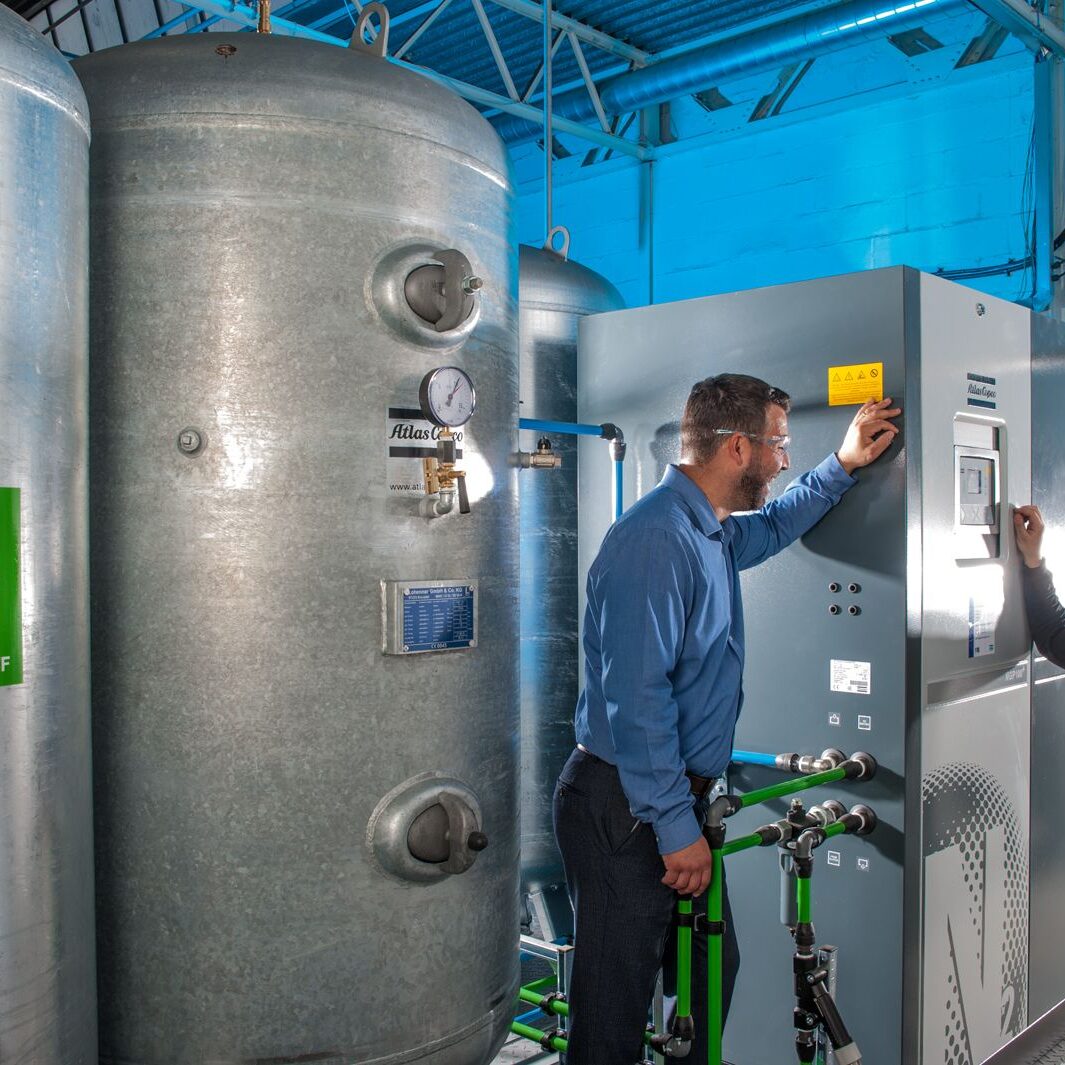
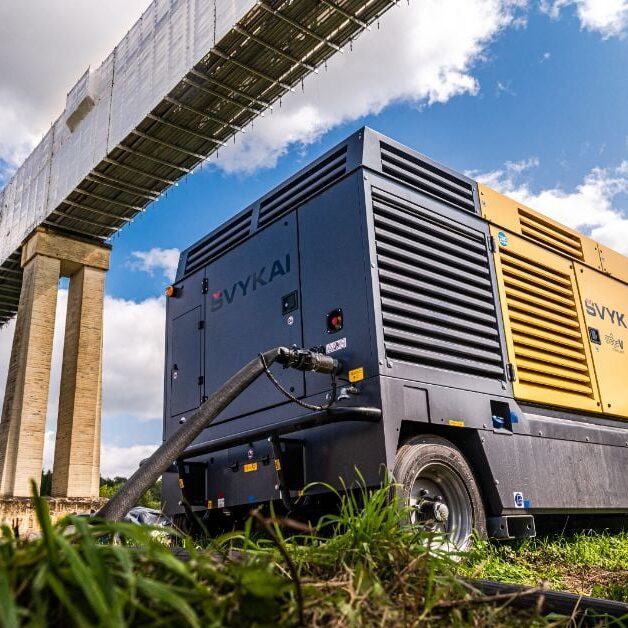
Structural Work and Surface Preparation
- Impact Wrenches: A 1-inch impact wrench typically needs 10-15 CFM for structural bolting.
- Abrasive Blasting: The sizing of these tools is determined by the size of the nozzle orifice. The most common nozzle is 3/8-inch (#6) and uses 200-250 CFM at 100 PSI to do an adequate surface preparation.
- Shotcreting: Shotcreting also requires large volumes of air and high pressure to blast the concrete mix. Shotcreting compressors are usually in the 250-750 CFM range.
Finishing and General Use
- Framing Nailers: Intermittent use means a low air demand, typically 2-3 CFM.
- Paint Sprayers: Although less pressure is needed, industrial-grade sprayers still often require a steady supply of 15+ CFM.
To ensure your tools operate correctly, you must know both your total air demand and the air compressor's CFM. The CFM rating of a machine is the amount of air that the compressor can output to meet the total demand of all the tools you will be running simultaneously.
Tip: How to Size Your Compressor
To size your compressor, total up the CFM for all tools that may run simultaneously. Add 25–30% headroom to account for pressure drops, tool age, and future expansion. Under-sizing creates backlogs and poor finishes, while over-sizing inflates your fuel costs. Always consider hose length and nozzle size when selecting units for blasting and spraying.
Power Source Guide: Slash Costs with the Right Compressor
Your site's location, power availability, and local regulations will determine the best power source for your portable compressor. Making the correct choice has a direct impact on your operational budget.
Portable Diesel Compressors: The Site Workhorse
Diesel units offer unmatched flexibility, making them essential for early-stage projects and remote locations. Modern machines are engineered for the rigours of a construction site.
- Compliance is Non-Negotiable: All new diesel compressors must meet EU Stage V emissions standards. This is critical for operating in low-emission zones (LEZ), with London's rules set to tighten further from 2025.
- Durability and Protection: Features like Atlas Copco’s impact-resistant HardHat canopy protect your investment from site damage and preserve its operational life.
- Versatility: Advanced PACE (Pressure Adjusted through Cognitive Electronics) technology allows a single machine to serve multiple applications by enabling you to set the exact pressure required, from breaking to blasting.
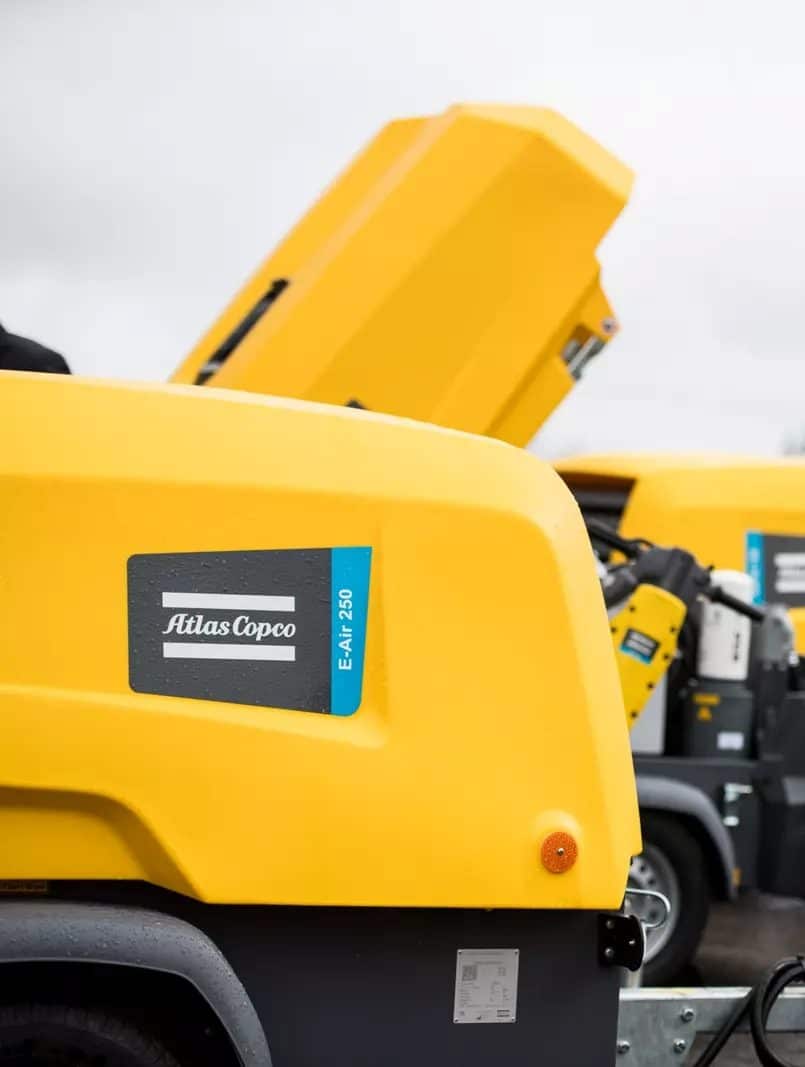
Portable Electric Compressors: The Urban and Indoor Solution
If you have access to a power source, why not consider an electric compressor? Atlas Copco's E-Air range of electric compressors has a lot to offer.
- Zero On-Site Emissions: The only option for working in tunnels, confined spaces, and environmentally sensitive or highly regulated urban centres.
- Low Noise Operation: Electric units are much quieter and can help you comply with local noise bylaws and stay below the 85 dB(A) upper action value set out in the Noise at Work Regulations.
- Superior Efficiency: Variable Speed Drive (VSD) technology enables the motor speed to be precisely matched to the demand for air. This can reduce your fuel and energy usage by up to 50% on the variable-load applications you find on construction sites.
Whichever power source you use, it's the quality of the air it produces that will really make the difference to the performance and longevity of your tools.
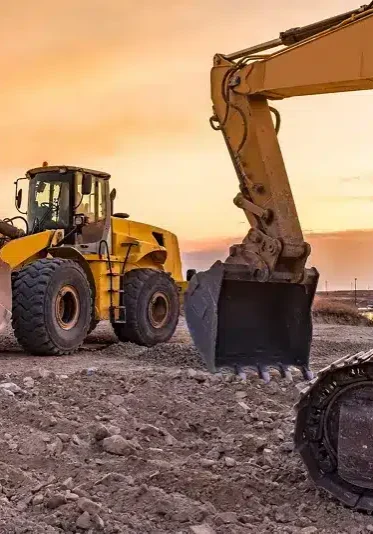
Protect Your Tools and Reputation with Clean, Dry Air
Condensed moisture in your system can ruin tools, finishes, and rework time. Contaminated air is a quality and schedule killer.
- Aftercoolers & Water Separators: They remove most of the liquid water in the compressed air.
- Air Dryers & Filters: For many sensitive processes, such as blasting, coating, and painting, an air treatment system with air dryers and inline filtration is recommended. This ensures the air quality meets desired specifications (ie, ISO 8573-1) and helps prevent expensive rework.
- Cold Weather Operation: Condensate can freeze up and cause catastrophic failure. Proper winterisation and heated enclosures are critical to winter operation.
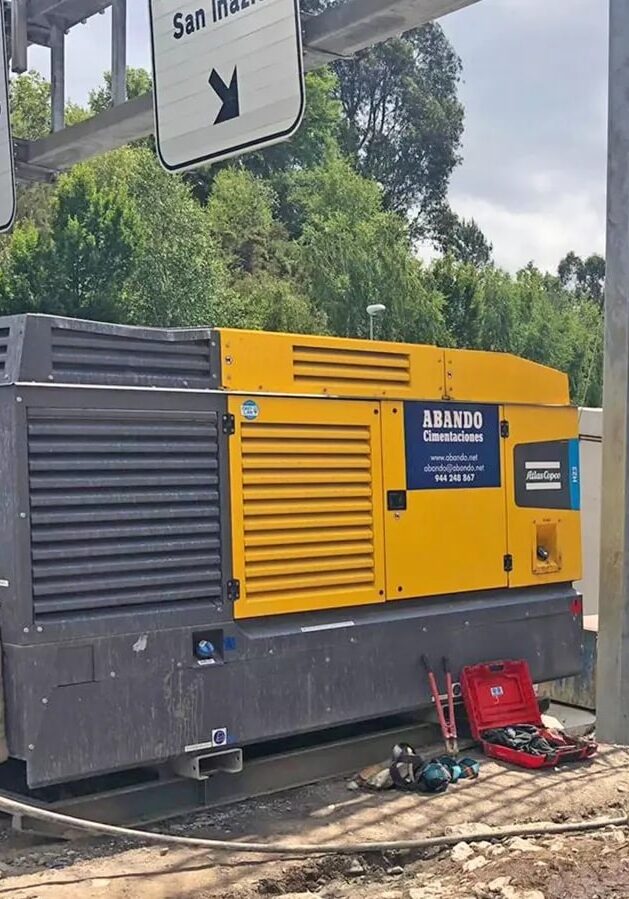
Avoid Fines & Downtime with Full Regulatory Compliance
Operating compressed air systems on a UK construction site involves a strict legal framework. Ignorance is no defence; non-compliance can lead to project shutdowns and severe penalties.
- PSSR 2000 (Pressure Systems Safety Regulations): It's illegal to operate most compressed air systems without a Written Scheme of Examination (WSE). This document must be certified by a "Competent Person" and dictates a formal inspection schedule. Anglian Compressors, a branch of Atlas Copco, can act as your Competent Person, managing the entire Written Scheme of Examination (WSE) and inspection process to ensure full compliance.
- NRMM Emissions Standards: Stage V diesel engines are a legal requirement for most new equipment to control particulate matter and NOx emissions.
- The Control of Noise at Work Regulations 2005: You are legally required to provide hearing protection and mitigation plans when noise exposure exceeds 85 dB(A). Using quieter electric compressors is an effective engineering control to help meet this standard.
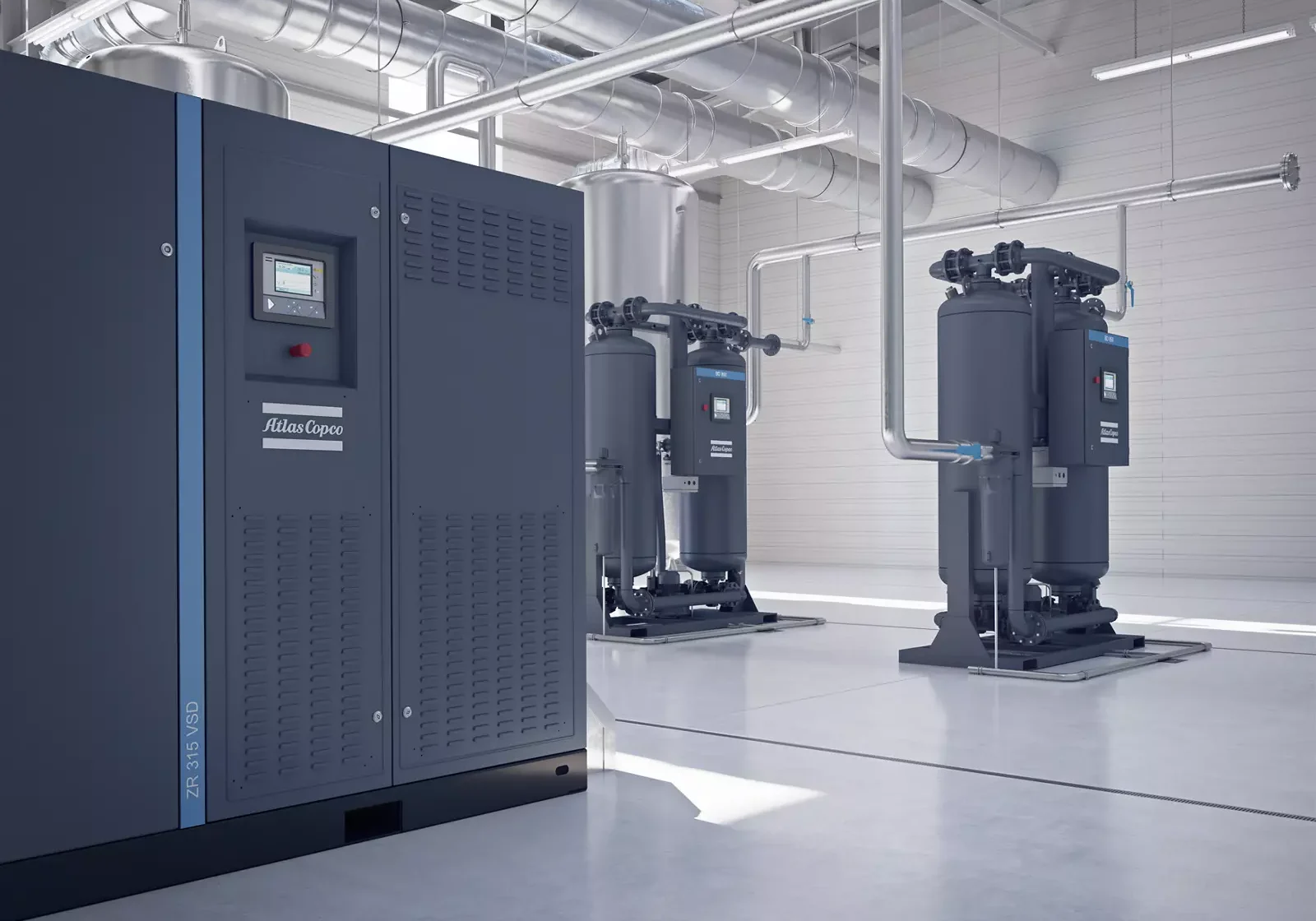
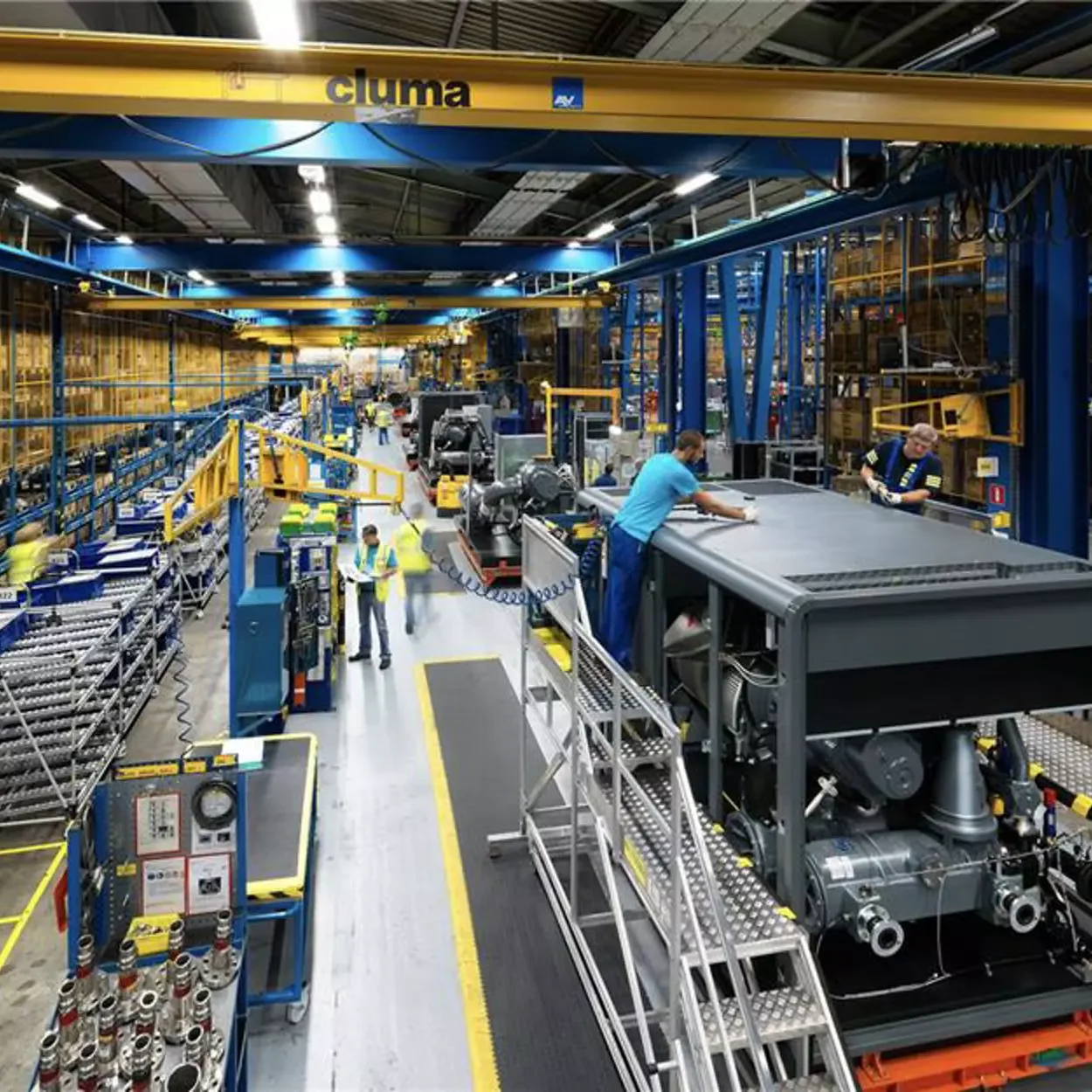
Quick Compliance Checklist
- Is a Written Scheme of Examination (PSSR 2000) in place?
- Stage V certification for diesel units?
- Under 85 dB(A) on site, or mitigation in place?
- Does the fuel system meet white diesel and bunded storage regulations?
Prevent Breakdowns and Control Costs with Proactive Servicing
On a construction site, downtime is a direct route to budget overruns. A proactive service strategy is crucial to maintaining your equipment's reliable operation.
- Preventative vs. Reactive Service: Waiting for a breakdown is the most expensive maintenance strategy. A planned service contract helps prevent failures before they occur. Common issues, such as diesel particulate filter (DPF) clogging – often caused by short-cycling engines operating on low loads – can be avoided with correct machine sizing and proactive maintenance.
- Eliminating Wasteful Leaks: Air leaks are a significant source of wasted energy and can cause pressure drops that affect tool performance. A professional leak detection survey, conducted using ultrasonic equipment, can pinpoint these leaks, often saving you thousands of dollars per year in fuel costs.
- Remote Monitoring: Systems like Atlas Copco SMARTLINK provide real-time data on your compressor’s health. This telematics platform enables predictive maintenance, sending you alerts about potential issues before they cause a failure on-site.
Looking for a hands-off solution? Our Compressed Air as a Service (CAaaS) model bundles hire, servicing, and compliance into one fixed monthly cost, ideal for long-term projects and changing site demands.
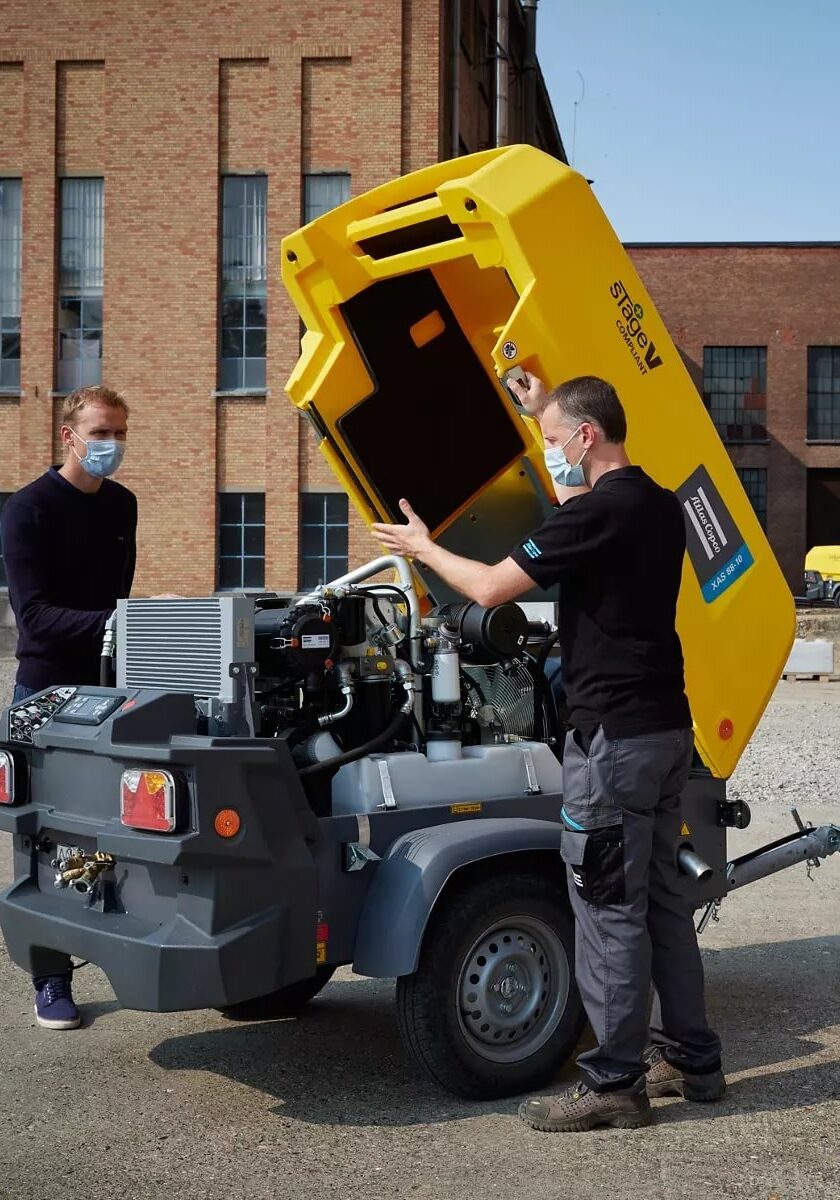
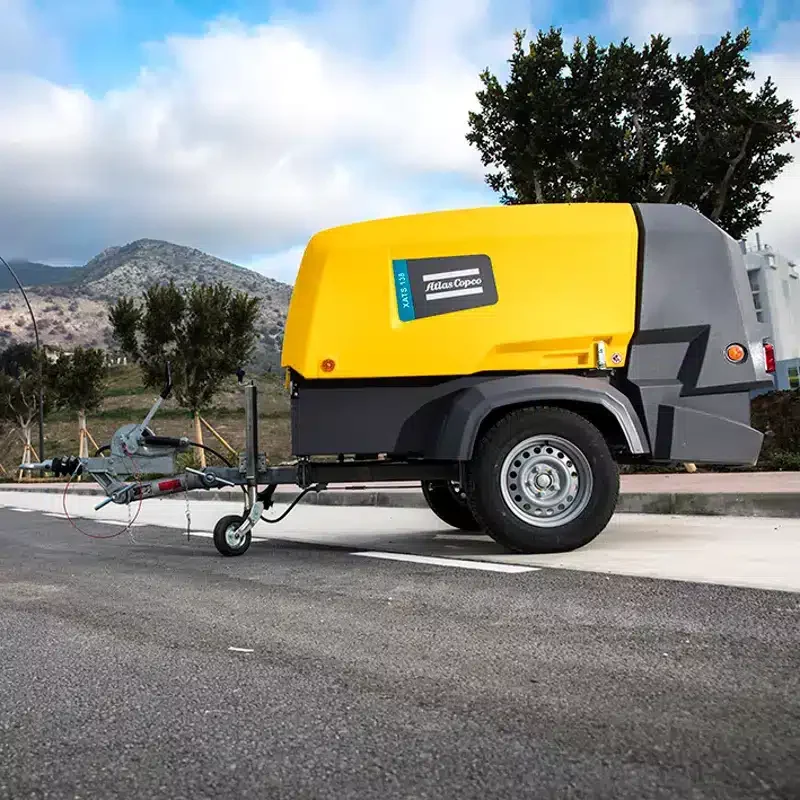
Your Local Partner for Construction Air Solutions
For construction companies across Peterborough, East Anglia, and the Midlands, one of your key considerations will be finding a local partner you can depend on to respond quickly when you need them. Our experts and equipment ensure your project receives a reliable, compliant, and cost-effective compressed air supply from Anglian Compressors, a branch of Atlas Copco.
As an Atlas Copco Stockist, we stock and supply the complete range of market-leading diesel and electric compressors, available for sale or hire. Our compressed air specialists also provide turnkey installation of air compressors, 24/7 emergency breakdown support, and complete compliance management services.
Stop downtime before it starts.
Talk to our compressed air experts today and keep your project moving — safely, efficiently, and 100% compliant. Whether you need immediate support, customised hire options, or a complete Compressed Air as a Service solution, we’re here to help.


